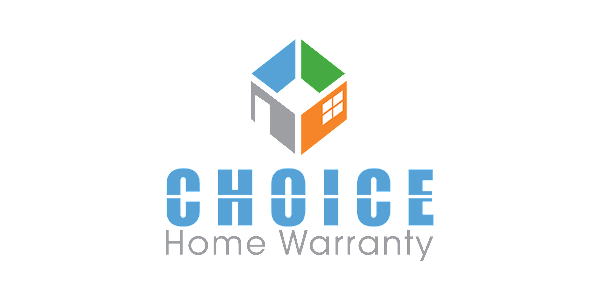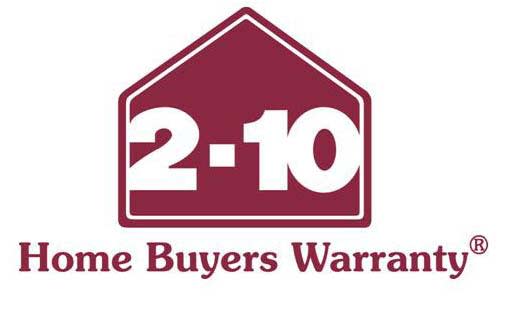There are many home warranty providers to pick from with various plan options, the best home warranty companies are determined by how well they can suit the demands of your home. Doing your homework on what each business has to offer is the best approach to getting the proper home protection plan for you.
Want to understand more before making a decision? These comprehensive evaluations are jam-packed with information on the best home warranty companies. Once you’ve decided on the best plan for your requirements, you’ll join the many homeowners who have peace of mind knowing they’re covered by one of the best home warranty companies.
You’ve just bought your dream home or moved into the ideal rental, complete with the stylish décor that transforms your property into your home. After a few months, everything has been unpacked and set in its proper location. However, after a few months of moving in, you are slapped with an unexpected and hefty bill when your heater fails during the winter.
Purchasing a best home warranty plan protects you against unexpected charges and worry, especially during the winter months when you’ll want to ensure that all of your heating appliances are in good order.
However, selecting the correct plan is not a simple task—there are several aspects to consider, including money, home type, and lifestyle.
10 Best Home Warranty Companies
Here are the best home warranty companies’ plans for 2022 that may be suitable for your new home.
- Ideal for those seeking low premiums and expenses
- Annual premium range: $404.99-$756
- Online and phone service requests are accepted 24 hours a day, seven days a week.
Select Home Warranty offers countrywide coverage with the exception of Washington, Wisconsin, Nevada, and New York. Homeowners may select from three different plans that cover the majority of important appliances and systems. Despite the fact that it offers reductions that make its premiums more inexpensive, its coverage limits are lower than those of several rivals. Select, on the other hand, offers free roof leak coverage with all of its plans, as well as phone assistance 24 hours a day, seven days a week.
Pros
- Reasonable premiums and surcharges
- 24 hour phone support
- Free roof leak repair.
Cons
- Limited coverage
- Nevada, New York, Washington, and Wisconsin are not available.
#2. Choice Home Warranty

- Best for: Homeowners seeking low-cost whole-house coverage.
- The average annual premium is $476-$660.
- Service requests can be made by phone or online 24 hours a day, seven days a week.
Choice Home Warranty provides low-cost options that cover the majority of your key appliances and systems. Furthermore, new users are eligible for a free month of coverage. You can file a claim online or by phone at any time, and a service provider will contact you within 48 hours. Services, on the other hand, are not offered in Washington or California, and Choice restricts coverage to $3,000 per item per contract period.
Pros
- Premiums are low.
- The first month is free.
- 24/7 online and phone claim assistance.
Cons
- Coverage ranges from $250 to $3,000 per item.
- In Washington, it is not available.
- Best for: Homeowners looking for comprehensive coverage options.
- The average annual premium is $552-799.
- During normal business hours, service requests are accepted online and by phone 24 hours a day, seven days a week.
HSC has been providing home warranty coverage to homeowners across the country since 2008. Its two service contracts cover the majority of the key appliances and systems in your home. Despite having higher premiums and service costs than many of its rivals, it offers incentives to make its plans more reasonable. With HSC, you may obtain pest damage coverage as well as unique extra features like utility line coverage. You may submit a claim online 24 hours a day, seven days a week, and HSC will schedule your treatment request within 12 to 48 hours.
Pros
- Coverage for insect damage is provided.
- Nationally available
- All repairs come with a 90-day craftsmanship warranty.
Cons
- Base premiums and service costs are both rather high.
- There is no 24-hour phone assistance.
#4. First American Home Warranty

- Best for high payout caps.
- Average annual premium: $372-546
- Service requests are accepted 24 hours a day, seven days a week, and there is no limit to the number of service requests that can be made.
With over 35 years of expertise, First American Home Warranty is a solid option for consumers looking for comprehensive coverage for their systems and appliances. Among its most appealing qualities are its claims to cover products regardless of age and to replace damaged items with brand new equivalents.
Although maximum rewards for numerous products exist, they are quite realistic and economical. Because of its simple and open application procedure, customers should be fully aware of which items belong within their coverage plans and which do not.
Pros
- 24 hour claim service is available.
- Completely vetted contractors
Cons
- There are just two conventional plans.
- The app is not available.
#5. Cinch Home Services

- Guaranteed best for craftsmanship.
- Annual premium range: $335.88-$1,163.88 on average.
- Online and phone service requests are accepted 24 hours a day, seven days a week.
Cinch Home Services has been providing home warranty services to clients around the country since 1978. It provides three plans that cover the majority of your home’s key appliances and systems. While its service expenses are comparable to those of most of its competitors, Cinch’s premiums can be relatively low depending on where you live.
It covers corrosion and rust damage, as well as pre-existing issues, unlike many of its rivals. You may file a claim at any time, and Cinch’s 180-day service guarantee assures you that your service fees for repetitive calls remain low.
Pros
- Coverage includes rust and corrosion damage as well as pre-existing conditions.
- a 180-day workmanship guarantee
- On all plans, the first two months are free.
Cons
- Alaska and Hawaii are excluded.
- There aren’t as many add-ons as some rivals.
#6. Liberty Home Guard

- Best forHomeowners seeking dependability, feedback, and a rapid claims procedure.
- The average annual premium is $499-$639.99.
- Service requests can be made by phone or online, 24 hours a day, seven days a week.
Liberty Home Guard provides a good consumer rating, amazing customer service, and a slew of specials and savings when you purchase a package. For example, if you buy a year’s worth of coverage, you’ll get two months free. Although Liberty Home Guard’s network of experts is slightly less than that of certain rivals, you may also source your own professionals.
Pros
- Outstanding client service.
- 2 months free with yearly billing.
- Customers give it high marks.
Cons
- In three states, it is not accessible (WA, WY, and WI).
- A smaller number of technicians
#7. 2-10 Home Buyers Warranty

- Customers who want high coverage limitations and quick service should choose this option.
- Range of annual premiums: $239.88-$720
- Online and phone service requests are accepted 24 hours a day, seven days a week.
2-10 Home Buyers Warranty has been in the home warranty market for 40 years. It has three plan tiers priced at $19.99 per month, $51 per month, and $60 per month. Service rates are customizable, ranging from $65 to $100 every visit, with an $85.50 standard fee. 2–10 HBW provides a large $25,000 annual coverage maximum, protecting you in the event of numerous appliance or system failures.
To begin, go to 2-10 HBW’s website or call customer support. A warranty may be purchased at any time, whether you are buying, selling, or have already lived in your home. Support is accessible 24 hours a day, seven days a week, and you may expect a service call within 24–48 hours after making your claim.
Pros
- It is available in the 48 contiguous states.
- Purchase a plan whenever you want.
- The yearly coverage maximum is $25,000.
Cons
- The annual premium is too expensive.
- hefty basic service charge
#8. First Premier Home Warranty

- Low service prices are the best.
- The average annual premium is $420-$540.
- Service requests can be made by phone or email at any time.
First Premier Home Warranty features moderate costs that are somewhat lower than other rivals, as well as two free months included with your plan, making it an excellent alternative for those on a tight budget. Its base plan, Premier, covers a reasonable selection of appliances and systems, with the ability to upgrade or add additional coverage if you want more coverage.
There is also a 30-day labour warranty and a 90-day parts guarantee. While the contractor network isn’t the largest, First Premier tries to get your problems resolved within 48 hours.
Pros
- service charge of $60.
- Two months of free service.
- Rapid reaction from customer service
Cons
- Full information is not available on the website.
#9. Advanced Home Warranty

- Customers who want appliance and system coverage at a low cost may consider this option.
- The average annual premium is $476-$660.
- 24-hour service request hotline
Choice Home Warranty’s sister business is Advanced Home Warranty. It provides two cheap options that cover your home’s key appliances and systems. Its coverage limitations per item, however, are lower than those of other carriers. While it provides new clients with a free month of coverage, it does not provide 24/7 online assistance.
Pros
- Affordability of premiums
- All plans include coverage for appliances and systems.
- A free month of coverage is offered to new clients.
Cons
- Limited coverage
- There is no 24-hour online assistance.
#10. AFC Home Club

- Choosing your own contractor is the best option.
- Average yearly premium: $345-$575 (based on quotes obtained in August 2021)
- Service requests can be made online or by phone at any time.
AFC Home Club, which covers a wide range of systems and appliances, might give you important peace of mind if one of your home’s key equipment fails. It has four plan categories (Systems, Silver, Gold, and Platinum), each with 24/7 in-house claims help.
Although its rates are about in line with industry standards, the supplier does offer a number of advantages over its competitors, including the market’s longest craftsmanship guarantee and a variety of appealing features.
Pros
- Records of home inspections and upkeep are not necessary.
- There is no limit to the number of service requests that can be made.
- The ability to select one’s own contractor
Cons
- There is no live chat available.
- The app is not available.
Homeowners and landlords might benefit from a home warranty policy
Assume you’ve just purchased your dream home or moved into the ideal rental, complete with the gorgeous décor that transforms your property into your home. After a few months, everything has been unpacked and set in its proper location. However, after a few months of moving in, you are slapped with an unexpected and hefty bill when your heater fails during the winter.
With a new mortgage payment and a limited amount of resources, you have several financial alternatives for covering this unexpected expense. This cost, as well as any significant systems and appliances that may need repair or replacement in your home, would have been covered if you had acquired a home warranty plan.
What Kinds of Home Warranty Plans Are There?
Home warranty plans are often divided into two categories: appliance plans and system plans. Some will simply be named Appliance and Systems plans, while others will have titles like Gold, Platinum, and so on, but you’ll know which is which. Most home warranty providers include a combination, or total, plan that covers both appliances and systems.
What Is Covered by a Home Warranty?
The following key appliances and systems are commonly covered by home warranties:
- The system of central air conditioning
- system of central heating.
- Humidifiers
- Electrical systems in the interior
- Refrigerators
- Ovens, ranges, and cooktops
- Dishwashers
- Microwaves that are built-in
- Heaters for water
- piping systems
- Waste disposal
- Washing machines and dryers
- Automatic garage door openers
- roof leaking
When Should You Get a Home Warranty?
Home warranties are available to all homeowners, both new and old. Home warranty programmes are typically given to home buyers when they purchase a new home. If the buyer decides not to obtain home warranty insurance at the same time as their home purchase, they can still secure a home protection plan at a later date. There is no time limit on when a homeowner can opt to buy a warranty plan.
The Price of a Home Warranty Plan
Typical home warranty plans range in price from $350-500 per year, or $45-60 per month, and can be paid in one flat sum during the purchase of a new home. This lump sum payment would be collected when the closing fees for the newly bought home are due. Home warranties can, however, be purchased on behalf of a home buyer by the seller, real estate agent, or a family member or friend. If a homeowner files a home appliance insurance claim, the homeowner may be responsible for paying a service charge or deductible, which normally runs from $50 to $125. Please keep in mind that home warranty providers have various contract arrangements, so charge amounts may vary.
What is the Term of Coverage for Home Warranties?
While coverage varies based on the home warranty business and policy wording, it is critical to note that these plans are more like home service contracts that cover repair and replacement of appliances, equipment, and other home components if problems arise during the coverage term.
Homeowners Insurance vs. Home Warranty
A home warranty and homeowners’ insurance are not the same thing. Homeowners’ insurance is a yearly requirement for buyers who finance their houses through any financing arrangement. Home warranties give extremely precise coverage for certain appliances, equipment, and other components for a set period of time indicated by the policy conditions. Home warranty coverage may be renewed, and warranty firms, such as Choice Home Warranty, usually give homeowners courtesy reminders before the insurance expires.
New Construction Home Warranties
Builders may provide home warranties to buyers of newly constructed homes. Some structural elements, such as siding and stucco, may be covered under this sort of home warranty. Most warranties for new construction would cover the cost of labour and materials for features such as doors, trim, and paint for at least the first year of coverage. As with Select Home Warranty, components of the heating, ventilation, and air conditioning systems, as well as the plumbing network, may be covered for at least one year. Some builders may extend home warranty coverage for significant structural issues in newly constructed homes for up to ten years.
Home Warranties on Resale Properties
In the case of a resale home, the seller may include a home warranty as part of an incentive package to reassure the buyer that repairs and replacement of existing appliances and equipment are covered.The coverage period might range from one month to one year from the date of closure. The coverage may be staggered dependent on the appliance or equipment at issue, depending on how the insurance is worded. For example, home warranty coverage for a washer and dryer set may be limited to the first three months, but a water heater may be covered for a year. AFC, for example, covers it on an annual basis.
For additional coverage, homeowners may choose to acquire a home warranty policy from a third-party provider. Buyers who finance their home purchase using Department of Veteran Affairs loans may be required to pay for add-on contracts given by the builder.
Coverage periods differ amongst home warranty providers, so be sure you understand how long you’re protected for before signing on the dotted line.
The Home Warranty Procedure
Filing a claim is a straightforward procedure. Examine your insurance contract before filing to ensure that the item you need to repair or replace is covered by your policy. Complete the following actions next:
To register a claim, contact your home warranty company.
- The warranty provider will look over their home warranty policies to make sure you have one that covers the item in question.
- The warranty provider will arrange for you to meet with a local contractor.
- The contractor will assess the problem and propose whether the item in question should be repaired or replaced.
- Repairs and replacements will be made.
- You pay a charge to the warranty business in the form of a service fee.
- Done



